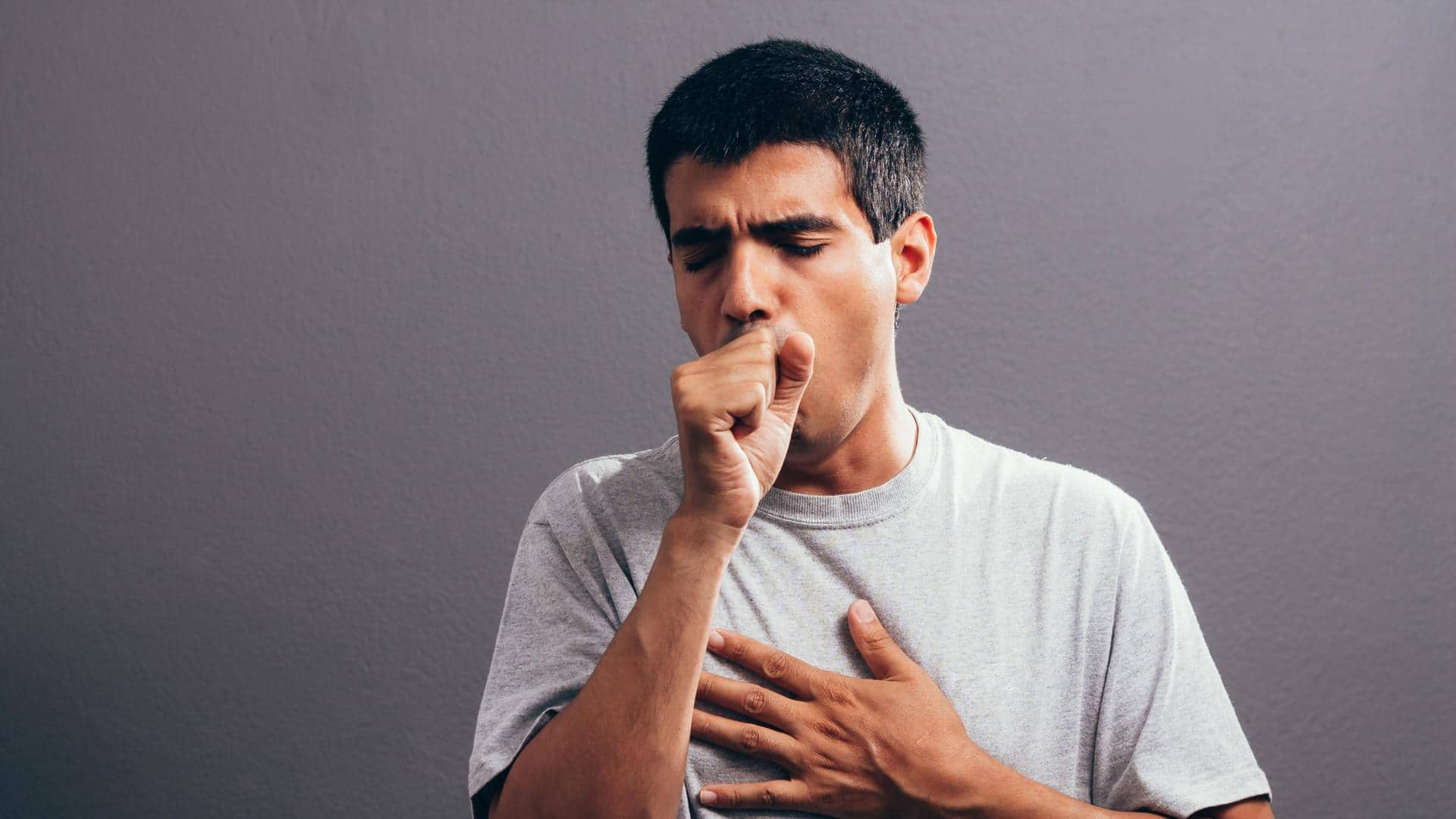
Types of coughs and what they mean
What's the story
Coughing is a common reflex that helps clear the airways.
While most coughs are harmless and go unnoticed, some severe cases can be concerning.
Understanding the different types of coughs and what they signify can be vital in identifying potential underlying health concerns and taking appropriate measures to safeguard our well-being.
Let us explore the different types of cough and what they mean.
Wet
Wet cough
A wet cough is when you cough up mucus.
Wet coughs are common symptoms associated with various conditions, including the common cold, flu, asthma, bronchitis, chronic obstructive pulmonary disease (COPD), and pneumonia.
In these cases, the body uses coughing as a natural way to clear the excess mucus and irritants from the airways which helps to alleviate congestion and facilitate the healing process.
Dry
Dry cough
A dry cough feels like a tickle in the back of the throat. Unlike a wet cough, it usually doesn't bring up mucus.
Dry coughs can be caused by inflammation in the respiratory system and may indicate various conditions such as a cold, flu, allergies, asthma, COVID-19, exposure to irritants like pollution or smoke, sinusitis, sore throat, or tonsillitis.
Paroxysmal
Paroxysmal cough
A paroxysmal cough is an intense, uncontrollable coughing episode that can be exhausting and painful.
It may cause breathing difficulties and vomiting.
The most common cause of this type of cough is pertussis or whooping cough.
Other possible causes include asthma, choking, COPD, pneumonia, and tuberculosis.
Whooping cough is very serious and may even be life-threatening for babies.
Croup
Croup cough
Croup cough is mainly caused by a viral infection and is common in children under the age of five.
The infection leads to swelling and irritation in the airway.
Since young children already have narrower airways, the additional swelling can make it challenging for them to breathe.
In severe cases, children's skin may appear pale or bluish due to reduced oxygen levels.
Home remedies
Home remedies for cough
Regardless of the type of cough you have, there are several home remedies you can try to find relief.
Look for over-the-counter cough syrups containing thyme.
Gargling with salt water multiple times a day can also be helpful.
Increasing moisture in the air, and taking warm showers or baths may help loosen mucus.
Staying hydrated by drinking enough water and warm beverages is essential.